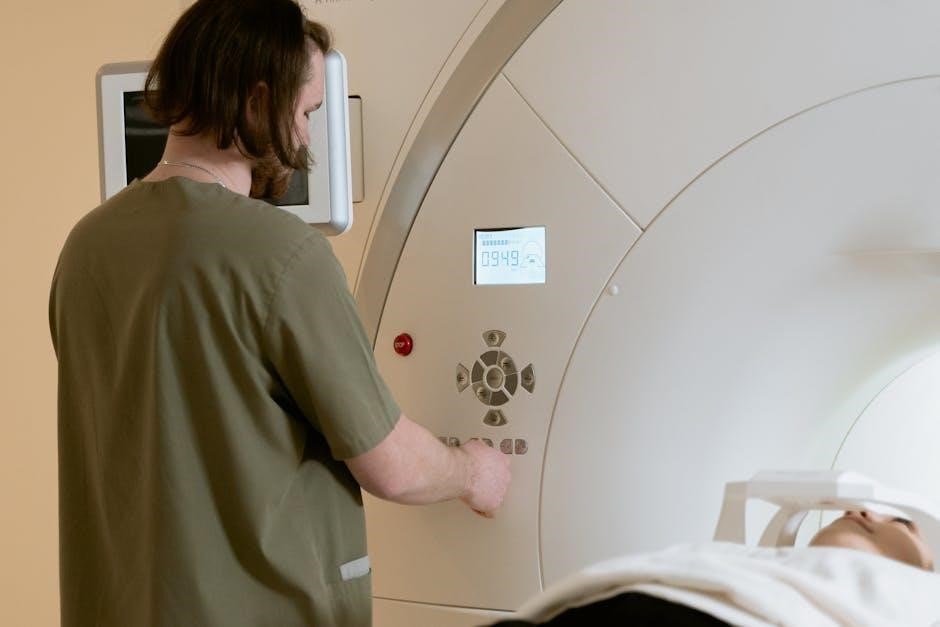Anger management assessments are tools designed to identify and evaluate individual anger patterns, providing insights into triggers and responses. They help individuals recognize early warning signs, understand emotional and cognitive reactions, and develop effective coping strategies to manage anger constructively. Regular assessments are crucial for monitoring progress and improving emotional well-being.
Overview of Anger Management and Its Importance
Anger management is a critical process aimed at helping individuals recognize, understand, and control their anger in healthy ways. Effective anger management reduces aggression, improves emotional well-being, and enhances relationships. It is essential for personal growth, workplace harmony, and maintaining social connections. Assessments play a vital role in identifying triggers, patterns, and responses, enabling personalized strategies for managing anger constructively. By addressing underlying issues and teaching coping techniques, anger management fosters self-awareness and emotional regulation. Regular assessments ensure progress and long-term success, promoting a balanced and positive approach to handling anger in various life situations.
The Role of Assessments in Understanding Anger
Assessments are essential tools for understanding anger, providing insights into triggers, patterns, and responses. They help identify early warning signs, such as physical reactions or thought patterns, that signal rising anger. By evaluating emotional, cognitive, and behavioral responses, assessments enable individuals to recognize how they experience and express anger. This understanding is crucial for developing targeted strategies to manage anger effectively. Assessments also aid in monitoring progress over time, ensuring interventions are tailored to specific needs. Whether through self-report questionnaires or clinical evaluations, these tools are vital for addressing anger constructively and fostering healthier emotional regulation.

Defining Anger Management Assessment
An anger management assessment is a structured evaluation process using tools like questionnaires and scales to identify and analyze anger patterns, triggers, and responses in individuals.
What is an Anger Management Assessment?
An anger management assessment is a systematic process used to evaluate how individuals experience, express, and manage anger. It involves standardized tools like questionnaires, rating scales, and scenario-based evaluations to identify triggers, response patterns, and the intensity of anger. These assessments help professionals understand underlying causes of anger, such as emotional reactivity or cognitive distortions, and determine the effectiveness of current coping strategies. By analyzing physical, emotional, and cognitive responses, assessments provide insights into anger styles, such as masked, explosive, or chronic anger. The goal is to create a personalized plan to improve emotional regulation and reduce harmful behaviors. Regular assessments also track progress in managing anger effectively.
Types of Anger Assessments
Anger assessments can be categorized into several types, each serving distinct purposes. Self-report questionnaires, like the Anger Management Assessment (AMA), ask individuals to rate their feelings and behaviors. Observational tools rely on professional evaluations of anger expressions and triggers. Scenario-based assessments present hypothetical situations to gauge responses. Physiological measures monitor bodily reactions, such as heart rate changes. Cognitive assessments focus on thought patterns fueling anger. Behavioral scales, like the Novaco Anger Scale (NAS), evaluate aggression levels. Additionally, specialized tools like the Anger, Aggression, and Violence Assessment (AAVA) address risk factors. Each type provides unique insights, helping tailor interventions to individual needs. Combining multiple methods ensures a comprehensive understanding of anger dynamics and management strategies.

Key Components of Anger Management Assessments
Key components include identifying triggers, recognizing early warning signs, evaluating physical and emotional responses, and assessing cognitive patterns. Tools like anger meters and scenario-based evaluations are commonly used.
Identifying Early Warning Signs of Anger
Recognizing early warning signs of anger is crucial for effective management. Common physical indicators include increased heart rate, clenched fists, and tightened muscles. Emotional signals may involve feelings of irritation, frustration, or resentment. Cognitive signs include negative thought patterns or assumptions of unfairness. Assessments often ask individuals to reflect on their experiences and rate how frequently these signs occur. Identifying these indicators helps individuals intervene early, preventing escalation. Tools like anger meters or scenario-based evaluations are commonly used to monitor and understand these signals better. Early recognition enables the application of coping strategies, fostering better emotional regulation and reducing harmful reactions. Awareness is the first step toward effective anger management.
Evaluating Physical, Emotional, and Cognitive Responses
Evaluating physical, emotional, and cognitive responses is essential in anger management assessments. Physically, individuals may exhibit increased heart rates, tense muscles, or clenched fists. Emotionally, feelings of frustration, resentment, or irritability often surface. Cognitively, negative thought patterns, such as assumptions of hostility or unfairness, may fuel anger. Assessments like the Novaco Anger Scale (NAS) measure these responses, helping individuals understand how anger manifests in their body, emotions, and thoughts. By identifying these indicators, individuals can better recognize when anger is escalating and apply strategies to manage it effectively. This comprehensive evaluation provides a foundation for tailored interventions, promoting healthier emotional regulation and reducing harmful reactions. Regular monitoring of these responses fosters long-term anger management success.

Popular Anger Management Assessment Tools
Tools like the Anger Management Assessment (AMA), Novaco Anger Scale (NAS), and Anger Meter help evaluate anger triggers, physical responses, and emotional patterns, aiding in effective management strategies.
Anger Management Assessment (AMA)
The Anger Management Assessment (AMA) is a self-report tool designed to evaluate dysfunctional anger in adults aged 18 and older. It consists of 123 true/false and multiple-choice items, assesses five key scales: Truthfulness, Alcohol, Drugs, Anger, and Anger Management. The AMA provides insights into how individuals experience and manage anger, identifying potential triggers and coping mechanisms. It is brief, taking about 30 minutes to complete, and is computer-scored for ease of administration. This tool is widely used in clinical and organizational settings to help individuals understand their anger patterns and develop strategies for improvement. Regular use of the AMA can monitor progress in anger management programs.
Novaco Anger Scale (NAS)
The Novaco Anger Scale (NAS) is a widely used assessment tool designed to measure anger across three key components: Arousal, Cognition, and Behavioral. It evaluates physical and emotional responses, thought patterns, and reactions when angered. The NAS helps identify how individuals experience and express anger, providing insights into potential triggers and underlying beliefs. This tool is particularly useful in clinical settings to assess anger-related issues and develop targeted interventions. By understanding these components, individuals can better manage their anger and improve emotional regulation. The NAS is a valuable resource for both diagnosis and monitoring progress in anger management programs.
Anger, Aggression, and Violence Assessment (AAVA)
The Anger, Aggression, and Violence Assessment (AAVA) is a comprehensive tool designed to measure emotional reactivity across a continuum. It assesses anger, aggression, and violence through seven distinct domains, providing a detailed risk-level classification. This assessment is particularly useful in clinical and criminal justice settings, offering tailored intervention recommendations. By evaluating an individual’s tendencies toward aggressive behavior, the AAVA helps identify underlying triggers and patterns. Its structured approach ensures accurate identification of risk factors, enabling professionals to develop targeted strategies for management and treatment. The AAVA is a valuable resource for understanding and addressing complex emotional and behavioral challenges effectively.
Styles of Anger Assessment
The Styles of Anger Assessment identifies specific anger patterns, such as masked, explosive, or chronic anger, helping individuals understand their unique expressions of anger. This tool evaluates how individuals experience and exhibit anger in different situations. By assessing these styles, it provides insights into underlying triggers and emotional responses. The assessment often involves self-reflection and scenario-based evaluations, allowing individuals to recognize their anger patterns. This understanding is crucial for developing personalized strategies to manage anger effectively. The assessment also aids professionals in creating tailored interventions, promoting healthier emotional regulation and reducing harmful behaviors. It serves as a valuable resource for both personal growth and therapeutic settings.

Strategies for Effective Anger Management
Cognitive-behavioral techniques, relaxation practices, and mindfulness are effective strategies to manage anger. These methods help individuals identify triggers, regulate emotions, and respond constructively to challenging situations.
Cognitive-Behavioral Techniques
Cognitive-behavioral techniques are evidence-based strategies to manage anger by identifying and changing negative thought patterns. These techniques help individuals recognize triggers, challenge unhelpful beliefs, and replace them with constructive thoughts. Behavioral exercises, such as role-playing and problem-solving, are used to practice healthy responses to anger-provoking situations. Relaxation methods, like deep breathing and mindfulness, are often incorporated to reduce physical tension. By addressing both the cognitive and behavioral aspects of anger, individuals can develop better emotional regulation and improve their ability to handle conflicts effectively. Regular practice of these techniques enhances self-awareness and promotes long-term anger management, reducing the risk of harmful outbursts.
Relaxation and Mindfulness Practices
Relaxation and mindfulness practices are essential tools for managing anger effectively. Techniques such as deep breathing, progressive muscle relaxation, and meditation help calm the body and mind, reducing physical symptoms of anger. Mindfulness practices encourage individuals to stay present, observe their emotions without judgment, and respond thoughtfully rather than react impulsively. These methods teach individuals to recognize early warning signs of anger and intervene before it escalates. Regular practice enhances emotional regulation, improves self-awareness, and fosters a sense of control. By incorporating these practices into daily routines, individuals can better manage anger, leading to healthier relationships and a more balanced emotional state. These techniques are often recommended as part of comprehensive anger management strategies.
Anger management assessments empower individuals to recognize patterns, triggers, and responses, fostering self-awareness and emotional regulation. Continuous evaluation and practice lead to personal growth and positive change.
The Importance of Continuous Assessment and Improvement
Continuous assessment is crucial for understanding and managing anger effectively. Regular evaluations help identify patterns, triggers, and responses, enabling individuals to monitor progress and adjust strategies. Ongoing self-reflection and professional guidance foster emotional awareness and regulation. By repeatedly using tools like the Anger Management Assessment (AMA) or the Novaco Anger Scale (NAS), individuals can track changes in their anger responses over time. This process promotes personal growth, reduces conflict, and enhances overall well-being. Continuous improvement ensures that coping mechanisms remain effective, leading to better relationships and a more balanced life. Regular reassessment is key to sustaining progress and achieving long-term emotional stability.

